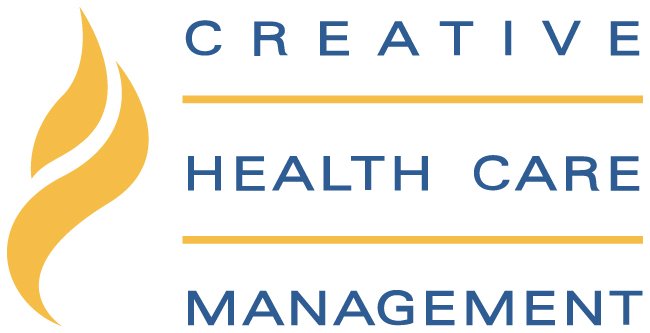Nursing teams play a crucial role in healthcare, ensuring patients receive comprehensive and effective care. This article will cover the roles within nursing teams, their responsibilities, how leadership can enhance their function, and strategies to tackle common challenges. We’ll also explore the benefits of the team nursing model and shared governance.
Key Takeaways
- Effective nursing teams improve patient care by leveraging individual skills, promoting collaboration, and utilizing a team nursing model tailored to various healthcare settings and patient needs.
- Strong leadership, characterized by critical thinking and interpersonal skills, is essential in empowering nursing teams, creating an inclusive environment, and enhancing patient safety and job satisfaction through effective delegation and shared governance.
- Implementing a growth mindset and shared governance in nursing teams encourages continuous learning, enhances collaboration, and improves retention rates, ultimately leading to better patient outcomes and overall team performance.
Understanding the Role of Nursing Teams

Nursing teams play a pivotal role in healthcare, providing quality patient care through collaboration. Team roles often include registered nurses, nursing career, Nurse Practitioner, and support staff, all unified by shared goals.
The team nursing model excels in implementing collaboration, particularly during staffing challenges such as those seen during the COVID-19 pandemic. This collaboration results in better patient outcomes and increased job satisfaction among nurses.
Team Composition
Nursing teams are composed of various professionals, including nurses, nurse practitioners, physician assistants, unlicensed assistive personnel, and support staff. The team nursing model often includes registered nurses, licensed practical nurses, and unlicensed assistive personnel, each fulfilling critical roles. The team leader nurse oversees the care provided by clinicians and support staff, ensuring cohesive efforts towards patient care.
A successful nursing team approach depends on recognizing and leveraging each member’s unique skills and strengths. Evaluating team members’ abilities can guide task delegation and management within the unit.
Factors such as the hospital setting, and patient count can affect a nursing team’s effectiveness. Understanding these dynamics helps optimize team performance and patient care.
Key Responsibilities
Nursing teams handle a broad range of responsibilities, including patient assessment, medication administration, PPE oversight, ventilator management, patient repositioning, assisting with ADLs, family communication, and more.
Unlicensed assistive personnel deliver essential personal care, measure vital signs, and distribute meal trays. Licensed practical nurses administer medications, perform technical tasks, and support both unlicensed assistive personnel and registered nurses.
Effective delegation necessitates clearly understanding each team member’s knowledge, experience, training, and qualifications. Aligning tasks with the appropriate skills and abilities ensures efficient and effective team operations.
The Impact of Leadership on Nursing Teams

Leadership is crucial for improving care quality and team effectiveness in nursing. Leading an empowered organization, known as the LEO framework, for example, helps to cultivate leadership skills and empowers nursing teams, enabling leaders to foster an empowered staff.
A well-led team nursing model enhances patient safety and care quality through effective delegation and resource utilization.
Qualities of an Effective Team Leader
An effective nursing team leader combines:
- Critical care experience
- Clinical knowledge
- Organizational skills
- Critical thinking
- Strong interpersonal skills
These interpersonal skills are vital for effective delegation and a collaborative team environment. Nurse leaders also promote inclusivity and transparency, which are essential for building a cohesive team.
Shared governance encourages nurses to collaborate with other healthcare professionals, enhancing teamwork and care delivery. This partnership promotes collaboration among nurses and interdisciplinary teams, enhancing nursing team effectiveness, patient care, and job satisfaction.
Delegation Best Practices
Effective delegation is crucial in the team nursing model, ensuring tasks are assigned based on team members’ skills and qualifications. Key guidelines include clear communication and appropriate task assignment, ensuring the right person is chosen for each task with necessary supervision.
Benefits of the Team Nursing Model

The team nursing model provides many benefits, such as enhanced patient care and increased job satisfaction among nurses. Promoting collaboration among all nursing staff ensures patient-centered care and better health outcomes. Effective communication and mutual respect within nursing teams positively impact patient experience.
Adopting the team nursing model boosts morale and accountability, facilitates faster competency achievement, and reduces burnout among nursing staff, leading to higher job satisfaction.
Enhanced Patient Care
In the team nursing model, each team member must know their responsibilities to ensure coordinated patient care. This model allows for faster training and deployment of support personnel, optimizing patient care delivery. Research shows that shared governance contributes to better patient outcomes by fostering continuous improvement and accountability.
Setting learning goals for nursing teams enhances professional development and improves patient outcomes. Relationship-Based Care® (RBC) provides a structural guideline to enhance safety, quality, and patient experiences through strong relationships within healthcare teams, creating a supportive and effective care environment.
Increased Job Satisfaction
Effective nurse leaders greatly influence workplace culture, improving job satisfaction and staff retention. Implementing shared governance enhances job satisfaction among nurses, making them feel more engaged and empowered. A diverse nursing team brings unique perspectives that strengthen overall team performance and patient care.
Relationship-Based Care® (RBC) seeks to improve patient safety and care quality by nurturing strong relationships within healthcare teams. This approach enhances employee satisfaction and patient experiences. By fostering a supportive environment where nurses feel valued, the team nursing model can boost job satisfaction and morale.
Challenges and Solutions in Nursing Teams

Nursing teams encounter challenges such as high workloads and communication barriers. High workloads can result in errors due to rushed communication and missed patient needs. Increased turnover or ineffective nursing orientation suggests a need to revamp staff training.
Addressing these challenges is essential for maintaining effective team nursing and ensuring quality care delivery.
Communication Barriers
Clear communication among team members is vital to minimize medical errors. Addressing these barriers through training and awareness can significantly improve the effectiveness of the nursing team and patient care quality.
Managing Workloads
Managing high workloads is a common challenge for nursing teams. The team nursing model increases staff agility and flexibility, enabling rapid deployment and training of support personnel. During high patient loads, the model allows for fewer registered nurses and more support personnel, optimizing care delivery.
Setting clear priorities and delegating tasks effectively can reduce stress and improve workload management. Implementing stress management techniques can mitigate burnout among nursing team members, ensuring they remain effective and engaged.
Shared Governance: Empowering Nursing Teams

Shared governance is a leadership model emphasizing partnership, equity, accountability, and ownership in decision-making. It empowers nursing teams by involving frontline staff in decision-making, fostering a culture of shared responsibility.
Creative Health Care Management emphasizes a culture transformation model prioritizing relationships among self, colleagues, and patients to enhance the overall healthcare experience.
Principles of Shared Governance
The foundational tenets of shared governance include partnership, equitable decision-making, accountability, and fostering a sense of ownership. Equity ensures all nursing team members have equal opportunities to contribute and influence decisions.
Accountability involves nurses taking ownership of their practice and outcomes, fostering a culture of responsibility.
Benefits of Shared Governance
Implementing shared governance can increase job satisfaction among nurses, improve retention rates, and, due to enhanced collaboration, lead to better patient outcomes. In environments practicing shared governance, nurses are empowered to advocate for quality care, leading to improved patient outcomes.
Shared governance benefits include stronger staff partnerships, ownership of data and outcomes, healthier work environments, increased employee satisfaction and retention, and better patient experiences. Fostering a collaborative environment helps mitigate the nursing shortage and enhances overall team performance.
Implementing Growth Mindset in Nursing Teams
Embracing a growth mindset can transform nursing team members’ perceptions of challenges, viewing them as opportunities for learning and development. This mindset helps healthcare professionals adapt more effectively to changes.
Emphasizing that intelligence and skills can be developed through dedication and effort fosters continuous learning.
Encouraging Continuous Learning
Mentorship programs effectively foster ongoing education and skill growth among nursing team members. Taking initiative can lead to self-discovery and innovative practices. Promoting the idea that intelligence is malleable fosters a growth mindset among team members.
Overcoming the Fixed Mindset
Identifying and overcoming a fixed mindset is crucial for fostering a culture of growth and resilience within nursing teams. Fixed mindsets manifest when team members fear mistakes, resist feedback, or are reluctant to embrace new challenges. These attitudes hinder engagement and growth, impacting team performance and patient care.
Overcoming a fixed mindset involves promoting a safe environment for taking risks and encouraging open communication. Creating a supportive atmosphere where team members feel comfortable exploring new ideas and learning from mistakes helps cultivate a growth mindset, enhancing overall team effectiveness.
Creative Health Care Management’s Approach to Nursing Teams
Creative Health Care Management emphasizes supportive frameworks and programs to enhance nursing team effectiveness. The organization focuses on fostering leadership and accountability through programs such as the Leading an Empowered Organization (LEO) framework and Relationship-Based Care® (RBC).
Leading an Empowered Organization (LEO)
The LEO framework helps healthcare leaders learn about leadership style and develop future leaders while challenging current leaders’ skills. Over 200,000 leaders have completed the LEO course, which emphasizes decentralization and empowerment: Responsibility + Authority + Accountability (R+A+A). The six core competencies of empowered leaders include articulating clear expectations, accepting responsibility, creating a culture of accountability, building healthy relationships, developing team members, and leading change while engaging others.
Appreciative Inquiry suggests leaders focus on the positive aspects of their organization to amplify positivity and energize staff.
Creative Health Care Management provides culture transformation solutions to hospitals, leadership teams, and behavioral health centers, with a 100% success rate for organizations partnering with CHCM for Magnet® journey support.
The impacts of CHCM’s cultural change management support include:
- Improvements in patient satisfaction
- Employee engagement
- Turnover and burnout reduction
- Achieving Magnet® and Pathway to Excellence® designations
Relationship-Based Care® (RBC)
Relationship-Based Care® (RBC) emphasizes the importance of strong interpersonal relationships in healthcare teams to enhance patient safety and overall care quality. RBC fosters a culture that enhances safety and quality of care by nurturing strong interpersonal relationships within healthcare teams. The ‘See Me as a Person’ workshop aims to help healthcare teams create therapeutic relationships to improve quality, safety, and the patient experience.
Leaders in Relationship-Based Care empower staff to design and refine their own practice through decentralized decision-making and shared governance. The ‘Re-Igniting the Spirit of Caring’ program focuses on engaging, renewing, and bonding people from all roles and disciplines within an organization, thereby enhancing employee engagement and patient care quality.
RBC is designed to improve safety, quality, patient experience, employee engagement, and financial performance.
Summary
Effective nursing teams are vital to delivering high-quality patient care and ensuring the smooth operation of healthcare facilities. By understanding the roles within nursing teams, leveraging effective leadership, and adopting the team nursing model, healthcare organizations can significantly enhance patient outcomes and job satisfaction for their staff. Shared governance and a growth mindset further empower nursing teams, fostering a collaborative and resilient work environment.
Creative Health Care Management approaches, such as the Leading an Empowered Organization (LEO) framework and Relationship-Based Care® (RBC), provide valuable tools and strategies for nurturing effective nursing teams. By embracing these principles and practices, healthcare organizations can create supportive, efficient, and highly engaged nursing teams that are equipped to meet the challenges of modern healthcare.
Frequently Asked Questions
What is an example of team nursing?
An example of team nursing is a medical-surgical unit where a charge nurse oversees a group comprised of several bedside nurses and nursing aides, delegating tasks and ensuring collaborative patient care. This approach enhances efficiency and promotes teamwork in delivering quality health services.
What is shared governance in nursing?
Shared governance in nursing is a collaborative leadership model that fosters partnership, equity, accountability, and ownership among nurses in the decision-making process. This approach empowers nurses and enhances their involvement in shaping healthcare practices.
How does effective leadership impact nursing teams?
Effective leadership significantly impacts nursing teams by fostering collaboration, accountability, and a culture of continuous improvement, ultimately enhancing the quality of care delivered. This creates a more efficient and motivated team dynamic.
What are the benefits of the team nursing model?
The team nursing model enhances patient care and job satisfaction through improved collaboration among nursing staff, leading to better health outcomes and reduced burnout. Therefore, implementing this model can significantly benefit both patients and healthcare professionals.
What strategies can help manage high workloads in nursing teams?
To effectively manage high workloads in nursing teams, it is crucial to set clear priorities, delegate tasks appropriately, and utilize stress management techniques. Implementing these strategies can significantly reduce burnout and enhance team efficiency.


